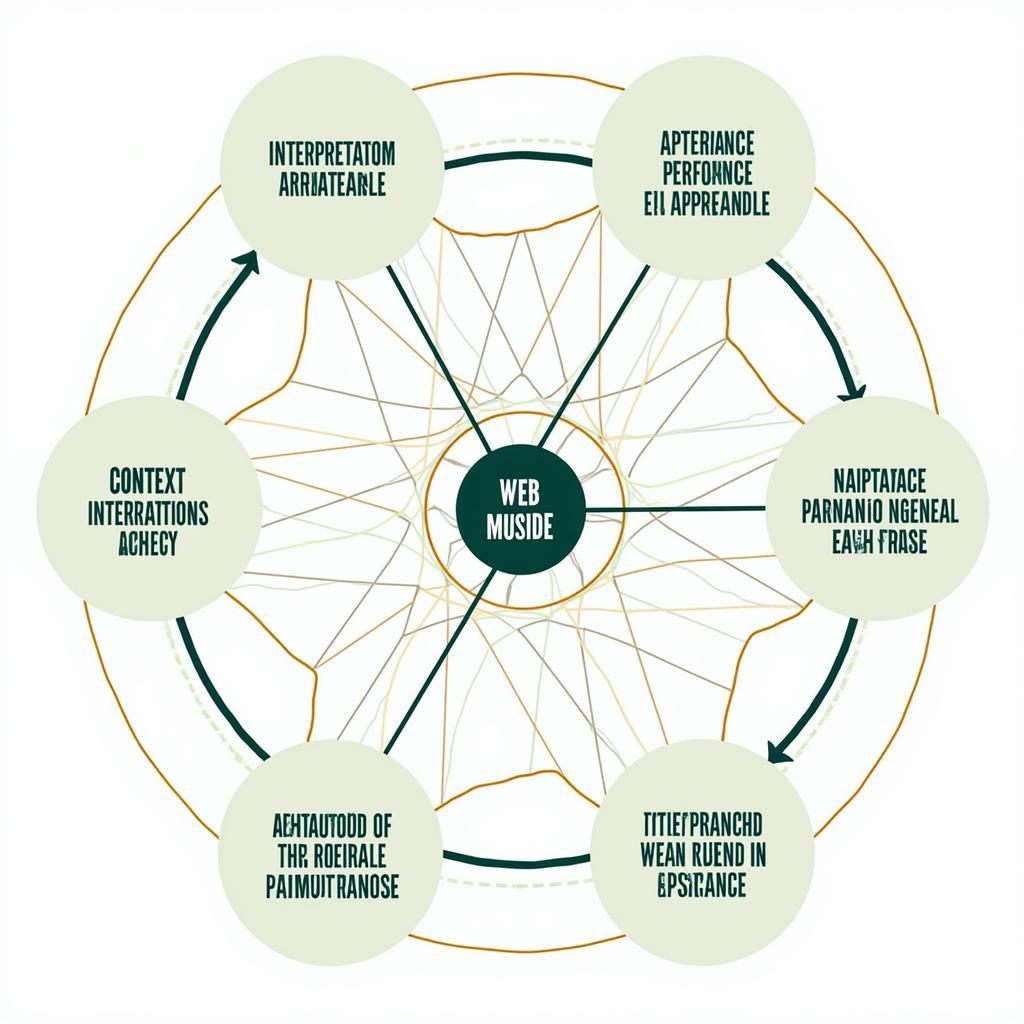Hermeneutic Research offers a unique lens through which to explore the often baffling world of paranormal phenomena. It moves beyond simply collecting data and delves into the interpretation of experiences, narratives, and cultural contexts surrounding these enigmatic occurrences. This approach allows researchers to gain a deeper understanding of the meaning and significance individuals ascribe to their paranormal encounters.
hermeneutics research is a powerful tool for understanding the human experience of the paranormal. By examining the narratives and interpretations surrounding these events, we can begin to unravel the complex interplay between belief, culture, and individual perception. This approach complements traditional scientific methods, offering a more holistic perspective on the subject. What does it mean to experience something seemingly beyond the realm of the natural? How do cultural narratives shape our understanding of these events? These are the questions hermeneutic research seeks to address.
Diving Deep into Hermeneutic Research: A Method for Understanding the Unexplained
Hermeneutic research, at its core, is about interpretation. It’s about understanding the meaning behind human actions, experiences, and texts. In the context of paranormal research, this means moving beyond simply documenting alleged hauntings, UFO sightings, or psychic abilities and delving into the why and how these experiences hold significance for individuals and communities.
What Questions Does Hermeneutic Research Ask?
Unlike traditional scientific methods that seek objective truth through empirical data, hermeneutic research embraces subjectivity. It acknowledges that individual experiences and interpretations are crucial to understanding the paranormal. This approach asks questions like:
- What does this experience mean to the individual who encountered it?
- How does their cultural background influence their interpretation?
- What role do pre-existing beliefs and narratives play in shaping their understanding?
- How does the experience fit into the larger narrative of paranormal phenomena?
 Hermeneutic Research in Paranormal Investigation
Hermeneutic Research in Paranormal Investigation
The Power of Interpretation: Unraveling the Subjective Reality of Paranormal Encounters
Hermeneutic research allows researchers to explore the subjective realities of those who claim paranormal experiences. It recognizes that these experiences, even if lacking objective evidence, hold real meaning and impact for the individuals involved. By carefully analyzing narratives, researchers can gain insights into the psychological, social, and cultural factors that contribute to the formation of these beliefs and experiences.
For instance, consider two individuals who witness the same unexplained light in the sky. One, raised in a family steeped in UFO lore, might interpret it as an extraterrestrial spacecraft. The other, a trained pilot, might dismiss it as an unusual atmospheric phenomenon. Hermeneutic research would explore both interpretations, seeking to understand the underlying reasons for their differing perspectives.
How Can Hermeneutic Research Be Applied in Paranormal Investigations?
Applying hermeneutic research to paranormal investigations often involves:
- In-depth interviews: Conducting extensive interviews with individuals who have experienced paranormal phenomena.
- Textual analysis: Examining written accounts, historical records, and cultural narratives related to the paranormal.
- Contextualization: Placing individual experiences within their broader social and cultural context.
- Interpretation: Analyzing the collected data to identify recurring themes, patterns, and meanings.
interpretative phenomenological analysis theory method and research can be combined with hermeneutic research to further enrich the investigation process. This method focuses on understanding the lived experiences of individuals, offering valuable insights into the subjective meaning they attach to paranormal encounters.
A Deeper Understanding: The Benefits of Hermeneutic Research
Dr. Evelyn Reed, a leading expert in the field of paranormal psychology, notes, “Hermeneutic research offers a vital bridge between the subjective experience of the paranormal and a more nuanced understanding of the human condition. It allows us to explore the complex interplay of belief, perception, and cultural narrative in shaping our understanding of the unknown.”
Professor Michael Davies, a renowned anthropologist specializing in folklore and mythology, adds, “By applying hermeneutic principles, we can move beyond simplistic explanations and gain a richer appreciation for the cultural and historical significance of paranormal beliefs across different societies.”
 Hermeneutics and Paranormal Research: A Holistic Approach
Hermeneutics and Paranormal Research: A Holistic Approach
Hermeneutic research doesn’t necessarily aim to prove or disprove the existence of paranormal phenomena. Instead, it seeks to understand the human experience of these phenomena, offering valuable insights into the power of belief, the influence of culture, and the enduring fascination with the unknown.
In conclusion, hermeneutic research provides a valuable framework for exploring the complexities of paranormal experiences. By focusing on interpretation and context, this approach allows researchers to delve deeper into the meaning and significance of these enigmatic encounters. If you are intrigued by the mysteries of the paranormal, consider exploring the world through the lens of hermeneutic research.
FAQ
- What is the main goal of hermeneutic research in the context of the paranormal? To understand the meaning and interpretation of paranormal experiences.
- How does hermeneutic research differ from traditional scientific methods? It focuses on subjective experiences and interpretations rather than objective data.
- What are some common methods used in hermeneutic research? In-depth interviews, textual analysis, and contextualization.
- Can hermeneutic research prove the existence of ghosts? No, it focuses on understanding the human experience of paranormal beliefs, not proving their objective reality.
- Why is cultural context important in hermeneutic research? Because cultural narratives and beliefs can significantly influence how individuals interpret paranormal experiences.
- What are the benefits of using hermeneutic research in paranormal investigations? It provides a deeper, more nuanced understanding of the human experience of the paranormal.
- How can I learn more about applying hermeneutic research to my own paranormal investigations? Research online, consult books on the subject, and consider joining a paranormal research group that utilizes this approach.
Need further assistance with your Paranormal Research? Contact us: Phone: 0904826292, Email: research@gmail.com. Visit us at No. 31, Alley 142/7, P. Phú Viên, Bồ Đề, Long Biên, Hà Nội, Việt Nam. We offer 24/7 support.